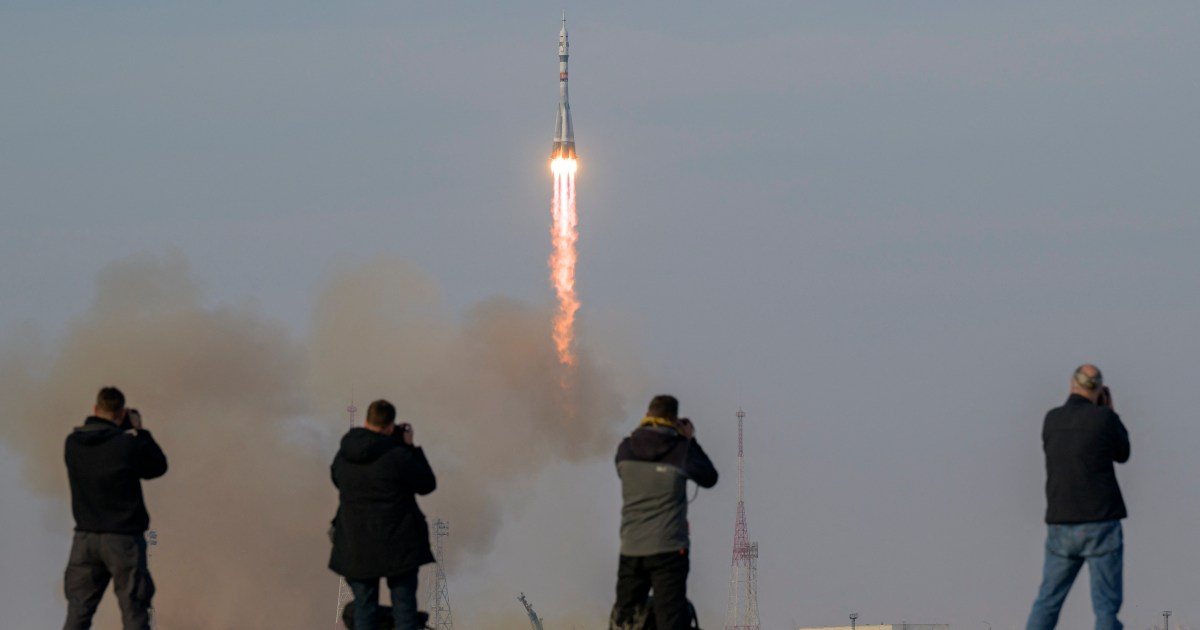A Russian launch site in Kazakhstan was damaged during a spacecraft launch carrying Russian and American astronauts to the International Space Station (ISS), Moscow’s space agency Roscosmos has said.
The joint Russian-US Soyuz MS-28 mission, carrying Roscosmos astronauts Sergey Mikaev and Sergey Kud-Sverchkov and NASA astronaut Chris Williams, took off from the Baikonur Cosmodrome at 12:28pm Moscow time (09:27 GMT) on Thursday.
Recommended Stories
list of 3 itemsend of list
The spacecraft successfully docked later that day, the ISS announced in a social media post, and the crew was on board the station in good health.
But after inspecting the Baikonur Cosmodrome following the launch, Russia’s state space agency confirmed that “damage to a number of elements of the launchpad” had been detected.
“An assessment of the state of the launch complex is being conducted now,” Roscosmos said.
“All the necessary reserve elements are there to restore it and the damage will be eliminated very soon,” it said.
Russian space bloggers, however, have claimed that the damage to the Baikonur Cosmodrome – Russia’s only launch site for crewed missions, located in the Russian-leased city of Baikonur in Kazakhstan – is more severe than authorities are claiming.
.@NASA astronaut @Astro_ChrisW and his two Roscosmos crewmates opened the Soyuz MS-28 hatch at 10:16am ET on Thanksgiving Day and joined Exp 73 crew. https://t.co/NQ7pUizkO2
Immediately after the morning launch, Russian rocket launch analyst Georgy Trishkin claimed that “the service cabin [had] collapsed” and part of the structures had fallen on launchpad 31, causing serious damage that could suspend operations for some time.
Russian space journalist Vitaly Egorov also drew attention to visible damage at the launch site that could be seen during the official broadcast.
“In the gas exhaust tray under the launchpad, there was some massive metal structure that should not have been there,” he said.
Egorov added that if the Baikonur Cosmodrome is disabled as suspected, Russia will have “lost the ability to launch people into space” for the first time since 1961.
The Soyuz crew is scheduled to spend 242 days at the ISS, returning to Earth in July 2026. Some 40 scientific experiments and two extravehicular activities will be conducted over the course of the eight-month mission.
Russia’s space programme, once a source of national pride, has suffered from years of chronic underfunding and corruption scandals.
Despite an almost complete breakdown in relations between Moscow and Washington over the war in Ukraine, space continues to be one of the few remaining areas of US-Russia cooperation.
Source: Aljazeera

Leave a Reply